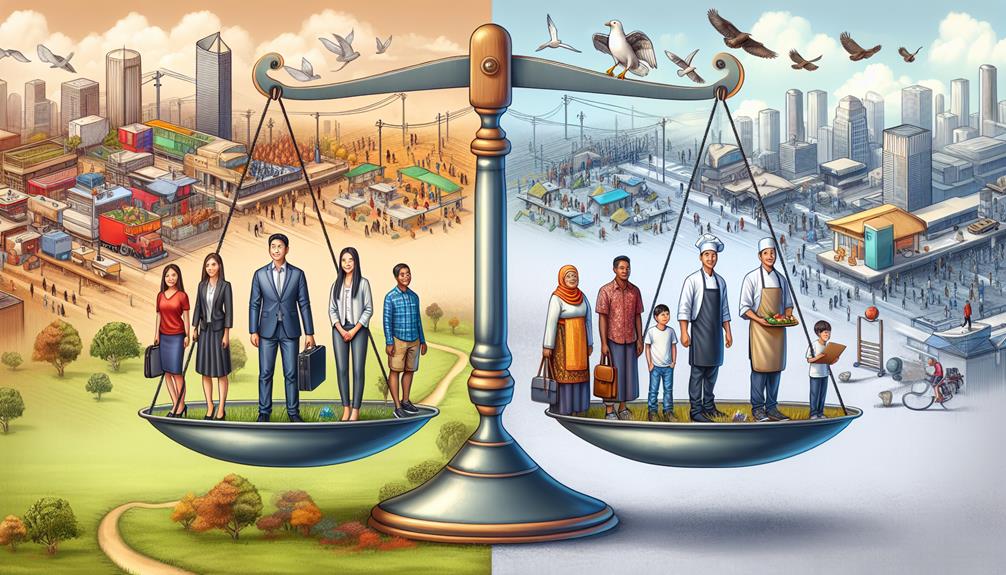Have you ever wondered if the news from 1996 still impacts our world today? As you explore the archives, you’ll discover how pivotal events, from the Atlanta Olympics to groundbreaking tech launches, have shaped the political, technological, and cultural landscapes we navigate now. You’ll see the threads connecting past and present, revealing patterns that might influence our future. Stay tuned as we uncover how these insights not only reflect on a year but echo through decades, offering a unique perspective on the evolution of global dynamics. What will you find that shifts your understanding of today’s world?
Major Events in 1996
The year 1996 was pivotal in shaping the global landscape, marked by significant international news, high-stakes global summits, and transformative treaties that would resonate for years to come. Each event not only reflected the priorities of the time but also set the stage for future geopolitical dynamics.
During this year, key agreements, particularly those forged during summits such as the G7 meetings, emphasized crucial topics like economic stabilization and environmental sustainability. The emphasis on these issues was a direct response to the challenges posed by globalization, underscoring the interconnectedness of nations in tackling global crises.
Delving into these events provides a deeper understanding of the geopolitical dynamics that emerged, revealing how decisions made in 1996 continue to influence international relations today. For instance, the Comprehensive Nuclear-Test-Ban Treaty (CTBT) not only aimed to curb nuclear proliferation but also represented a collective international commitment to peace, which remains relevant as nations grapple with nuclear threats.
International News
The international events of 1996 were characterized by significant shifts in diplomatic relations and escalating conflicts that would reshape the global landscape. Notably, the ceasefire in the First Chechen War, brokered in 1996, was a critical turning point that not only highlighted the internal strife within Russia but also influenced Russian domestic policies under President Boris Yeltsin. This conflict illustrated the fragility of post-Soviet state structures and the challenges of national identity in the wake of independence.
Furthermore, the establishment of formal diplomatic ties between China and South Africa marked a historic realignment in international alliances. This development was emblematic of the broader post-Cold War geopolitical reorganization, where emerging economies began to play a more prominent role on the world stage, changing the dynamics of traditional power structures.
Diplomatic Relations and Conflicts
In 1996, a series of pivotal events significantly reshaped diplomatic relations and heightened global conflicts. The intensification of the First Chechen War was a stark reminder of the volatility in Russia’s regional politics and its implications for NATO’s expansion eastward, which further strained relations with the West. As NATO sought to include former Eastern Bloc countries, Russia perceived this move as a direct threat to its sphere of influence.
Additionally, the Middle East peace process faced severe challenges, particularly highlighted by the opening of a controversial tunnel by Israel in Jerusalem—an event that sparked widespread protests and violence. Such incidents not only dominated headlines but also recalibrated international alliances, as nations took sides, demonstrating the complexities of Middle Eastern geopolitics.
Global Summits and Treaties
The year 1996 was marked by significant global summits and the signing of crucial treaties that fundamentally altered international relations and environmental policies. World leaders convened to address urgent global challenges, setting agendas that would influence decades of policy and diplomacy.
Here’s a closer examination of some key events to grasp their profound impact:
- Comprehensive Nuclear-Test-Ban Treaty (CTBT): Signed in September 1996, this treaty represented a landmark effort to prevent nuclear proliferation. With the goal of banning all nuclear explosions, it aimed to enhance global security. The treaty embodied a collective commitment to peace, echoing through subsequent international discussions on nuclear disarmament.
- World Food Summit: Held in Rome, this summit brought together over 180 countries to address global hunger and food security. Participants set ambitious targets to halve the number of undernourished people by 2015, emphasizing sustainable agriculture and equitable food distribution mechanisms. The summit’s resolutions underscored the need for integrated approaches to combat poverty and food insecurity, a challenge still relevant today.
- Habitat II Conference: Also known as the City Summit, this conference focused on human settlements and aimed to promote sustainable urban development practices. It highlighted the critical need for adequate shelter and the importance of creating sustainable urban environments to accommodate rapid urbanization in the 21st century.
These summits and treaties did more than just fill headlines; they guided the global community toward addressing pressing issues, urging immediate action and long-term commitment. The outcomes of these events are still felt today, as they laid the groundwork for ongoing international cooperation in tackling challenges such as climate change, food security, and urbanization.
As we further explore the ramifications of these summits and treaties, it becomes evident that the events of 1996 not only responded to the immediate concerns of the time but also set a course for future international collaboration and conflict resolution, shaping a more interconnected world.
Technological Advancements
In 1996, you witnessed pivotal strides in computing, with advancements that set the stage for today’s digital age.
Innovations weren’t just confined to bulky desktops; the domain of mobile technology also saw significant developments, hinting at the future ubiquity of smartphones.
These technological leaps not only reshaped the tech industry but also altered how you interact with the world on a daily basis.
Innovations in Computing
In 1996, you witnessed a significant surge in internet expansion which catalyzed the rise of e-commerce, reshaping how businesses operate and consumers shop.
This year marked a pivotal shift as companies like Amazon began to harness the Web’s potential, moving retail into a digital domain and setting a precedent for global online shopping.
This technological leap didn’t just open new markets; it also posed fresh challenges in digital security and consumer privacy that are still relevant today.
Internet Expansion and E-Commerce
The rapid expansion of the internet and the emergence of e-commerce in 1996 reshaped how businesses operated and interacted with consumers globally. This shift wasn’t just technical; it was cultural and economic, profoundly altering the marketplace.
- Global Reach: Businesses could now engage customers worldwide, inexpensively and instantly.
- Consumer Power: Shoppers gained unprecedented access to products, reviews, and price comparisons.
- Innovation Drive: Companies had to innovate continuously to stay relevant and competitive.
Mobile Technology Developments
Mobile technology made notable strides in 1996, revolutionizing how you communicate and access information on the go. This year marked substantial developments, particularly with the emergence of more sophisticated mobile phones and the inception of the Short Message Service (SMS), widely known as text messaging. These innovations not only altered your daily communications but also laid the groundwork for future advancements.
During this period, Nokia and Motorola were at the forefront, releasing models that were smaller, more user-friendly, and equipped with longer-lasting batteries. The introduction of these mobile phones significantly expanded their usability, transforming them from luxury items into essential tools for everyday life. You could now stay connected, manage schedules, and even play simple games wherever you were, without being tethered to landlines or bulky computers.
Moreover, 1996 saw the proliferation of digital cellular networks, enhancing signal clarity and data transmission speeds. This upgrade from analog to digital networks meant that you could enjoy clearer voice calls and a reduction in dropped calls, making mobile technology more reliable. This shift not only improved user experience but also increased mobile adoption rates, setting the stage for the mobile-first world you’re familiar with today.
Sports Highlights
In 1996, you witnessed the Atlanta Summer Olympics, a major highlight in the world of sports, symbolizing both triumph and tragedy. This event not only showcased record-breaking performances and the expansion of women’s athletic events but also faced the stark reality of the Centennial Olympic Park bombing.
As you explore these games, consider how they mirrored broader global shifts in politics and culture, influencing not just sports but international relations and national pride.
Olympic Games
In 1996, the Olympic Games in Atlanta weren’t just a showcase of peak athletic performance but also a stage for significant controversies that reverberated through the sports world.
You’ll notice that the medal achievements often were overshadowed by accusations of doping and biased judging, which sparked debates on the integrity of the competitions.
Analyzing these events provides a deeper understanding of how they influenced the future policies of international sports governance.
Medal Achievements and Controversies
The 1996 Olympic Games witnessed a mix of remarkable medal achievements and notable controversies that shaped the sports world dramatically.
- Doping Scandals: Several athletes were disqualified, tainting the event’s integrity.
- Record Breakers: Numerous world and Olympic records were shattered, showcasing peak performances.
- Political Protests: Athletes used the global stage to make powerful statements, sparking international debates.
Major Sporting Events
Reflecting on 1996, you witnessed a year packed with unforgettable sporting milestones, from the Summer Olympics in Atlanta to the crowning of the New York Yankees in the World Series.
The Atlanta Olympics, often remembered for the Centennial Olympic Park bombing, also shone brightly with iconic performances. You saw Michael Johnson blazing down the track to win gold in both the 200m and 400m races, setting a world record in the 200m that stood unchallenged for over a decade.
Gymnast Kerri Strug captured hearts worldwide, vaulting with an injured ankle to secure the U.S. women’s team their first-ever gold in gymnastics.
In the domain of baseball, the New York Yankees’ victory in the World Series wasn’t just another title win; it marked the beginning of a dynasty. You observed as they clinched their 23rd championship, defeating the Atlanta Braves with a clean sweep. This victory was a turning point, reestablishing the Yankees as a powerhouse in Major League Baseball after an 18-year championship drought.
Each of these events didn’t just make headlines; they shaped the landscape of their respective sports, influencing strategies, sponsorships, and international sports policies for years to come.
Business and Economy
As you examine 1996, you’ll notice it was a pivotal year for the business world, particularly in the domains of stock market trends and corporate mergers and acquisitions.
The stock market saw significant fluctuations, influenced by technological advancements and shifts in consumer confidence.
Meanwhile, the landscape of corporate mergers and acquisitions was marked by a notable increase in cross-border deals, reflecting globalization’s growing impact on business strategies.
Stock Market Trends
As you explore the landscape of 1996, you’ll find the early rumblings of the Dot-Com Bubble, a pivotal moment for the stock market trends that defined the late 90s.
This period saw a surge in investment as speculators and entrepreneurs alike rushed to capitalize on the burgeoning internet sector, greatly impacting the broader business and economic environment.
Understanding this trend provides important insight into the mechanics of market bubbles and their long-term implications on global economies.
Dot-Com Bubble
You’ll notice that the seeds of the Dot-Com Bubble were sown during the mid-1990s as investors aggressively poured money into burgeoning internet startups, betting on the technological promise of the digital age.
- Speculative Investments: Rapid inflow of venture capital.
- Unrealistic Expectations: Valuations based more on potential than real earnings.
- Market Frenzy: IPOs often doubling on their first day, despite minimal revenues.
Corporate Mergers and Acquisitions
In 1996, several high-profile corporate mergers and acquisitions reshaped major industries, reflecting broader economic trends and strategic shifts. You’ve probably noticed how these big moves not only changed the landscape of their respective sectors but also signaled emerging market dynamics and competitive pressures.
One of the standout transactions was the merger between Boeing and Rockwell’s aerospace and defense units. This deal wasn’t just about expansion; it was a strategic alignment to bolster Boeing’s capabilities against a consolidating global defense industry. You’d see that they were positioning themselves as a powerhouse in both commercial and military aircraft manufacturing, aiming to leverage Rockwell’s technology for future growth.
Similarly, the acquisition of MCI Communications by British Telecom highlighted the increasing globalization of the telecommunications industry. This wasn’t merely a business expansion; it was a pivotal move to tap into the burgeoning global market and diversify beyond national borders.
You can’t ignore how such mergers were precursors to later, more extensive global telecom partnerships, reshaping how companies approached international expansion and competition.
These mergers and acquisitions didn’t just make headlines; they were strategic chess moves. You’d recognize that they were critical in setting the stage for the next era of global business operations.




